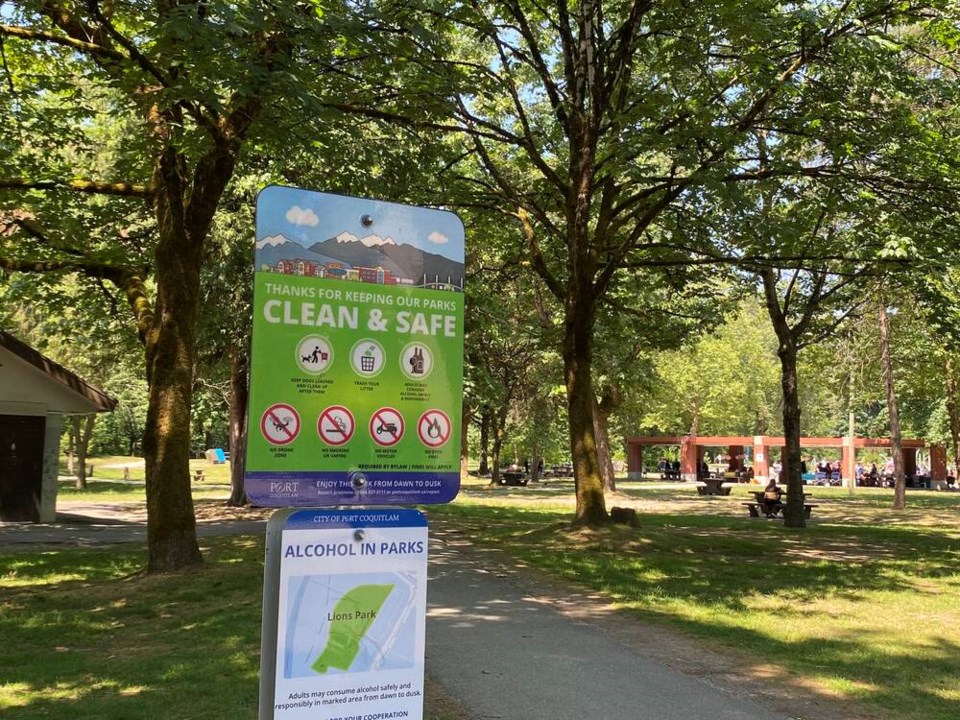Port Coquitlam's mayor says the city has to put in stricter controls to prevent open drug use in city parks and public spaces as families head to the outdoors during summer break.
By early next week, open drug use will not be permitted in PoCo parks and facilities with the adoption of amendments to the Parks, Facilities and Public Spaces Bylaw.
Brad West said the city had to amend its bylaws to forbid the use of opioids, such as fentanyl, and cocaine, methamphetamine, and MDMA because the province didn't take action when it introduced its decriminalization policies.
"It actually empowers bylaw officers, and the RCMP, to tell them that it’s prohibited and they can’t do that here," West told the Tri-City News today (June 28).
Why not ban drugs in parks?
West believes Port Coquitlam needed to act quickly after the province decriminalized certain drugs but didn't include parks and playgrounds in its list of prohibited areas, which currently includes only schools, daycares, airports and on Coast Guard vessels and helicopters.
"If you're going to prohibit drug use in child care centres and schools where children are at, why wouldn't you prohibit it in playgrounds?" said West, a father of two young children.
"The last thing a parent wants to think about when your kid is wanting to play and yahoo around are they going to come into contact with fentanyl — unless you’re living on another planet. That's common sense."
West said PoCo also received some legal advice that its bylaw had some "grey area" because it wasn’t updated to address decriminalization.
Decriminalization, which doesn't legalize but permits the possession of up to 2.5 grams of certain drugs, came into force with a Health Canada exemption to the Controlled Drug and Substances Act.
West said while open drug use isn't rampant in city parks, bylaw officers do find themselves occasionally dealing with situations involving potential drug use, often because of a community complaint.
Asked to stop or leave
He said while police can't take away someone’s drugs, like they might have before decriminalization, they can take action to require people to leave the area.
RCMP have the power to enforce the city's bylaws, and West said he expects them to do so.
"They are empowered to support us in enforcing those laws and that's what I expect."
Those who flout the bylaw could be fined, but West said he's not "naive" to think that's a solution.
Under the current bylaw, people in violation could be banned from the areas, such as a park or public facility, for up to 30 days.
Port Coquitlam is not the only city taking this step.
A number of B.C. municipalities, including Campbell River, are banning drugs in public places and Premier David Eby has said he will work with municipalities on their "shared goal" to create safer and healthier communities.
'Shared goal' for safety
In May, Eby committed to working with local governments through Mental Health and Addictions Minister Jennifer Whiteside and Public Safety Minister Mike Farnworth to identify the issues “and put those rules in place so that we can ensure safe communities for everybody.”
West said he has spoken to Farnworth, a Port Coquitlam MLA, about the city's intentions but hasn't heard back as to what the province has planned, if anything.
Meanwhile, the city is required to submit amendments related to public health to Fraser Health, and according to a staff report, the regional health authority has been notified.
West said he expects the province to update its policy by adding more public places or municipalities will have to take action on their own.
"If we don't have a bylaw in place, as it currently stands based on provincial law, there is no prohibition against using very dangerous and deadly drugs in playgrounds and parks."
Introducing such limitations is "common sense," said West, "You don't want someone using fentanyl — which can kill a child if they even come in contact with it — in a playground."
The city does, however, allow drinking alcohol "responsibly" in 10 public parks.
- with a file from Cindy E. Harnett, Times Colonist





